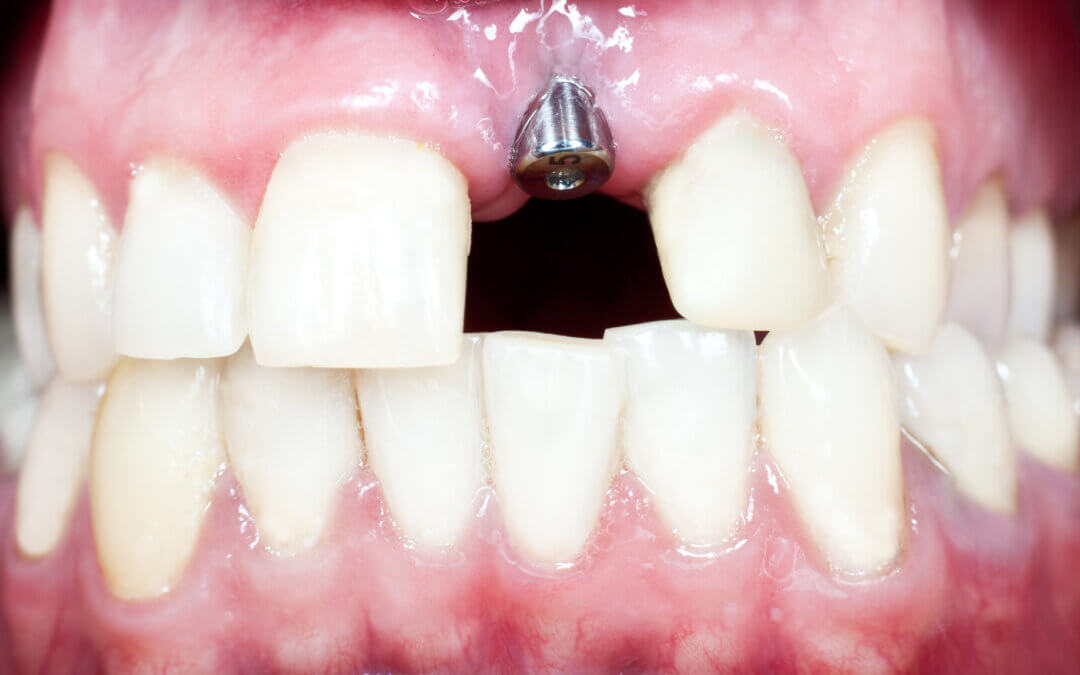Oral diseases affect nearly 3.5 billion people worldwide. Untreated tooth decay in permanent teeth is one of the most common health conditions and often leads to degenerating oral health. If you don’t stay on top of your dental care you could end up losing one or more teeth. Dental implants exist to help people who need a tooth replacement. The implants are inserted directly into your jawbone where the missing tooth used to be. While the implant heals, it fuses to the bone surrounding it, making implants incredibly sturdy options.
Implants replicate the look and feel of your natural teeth and have an incredibly high success rate. Most dental implant procedures are minor and only require a local anesthetic.
If you’re looking for Georgetown dental implants, you should look no further than Thompson Family & Implant Dentistry. We’ll take care of your teeth while also helping you heal after your tooth replacement.
Once your implants are in, you just need to make sure they heal properly. So, keep reading to find out what to expect after getting a tooth replacement.
Implant Placement Aftercare
After your appointment, you’ll need to stay on top of your oral hygiene. Good dental health is crucial if you want to ensure your implant heals properly. You need to care for your implants the same way you’d care for your natural teeth.
Staying on top of your dental health includes brushing and flossing as recommended while also committing to regular visits to your family dentist. If you care for your implants properly and the bone they’re fitted to is healthy you can expect your implants to last for a long time.
Your dentist will also be able to give you tips and tricks to help you make sure your teeth are well looked after.
Will My Mouth Bleed?
A common concern many patients have is that they’re afraid their mouths will bleed after getting implants.
Some bleeding after getting dental implants is normal. Usually, your dentist will apply gauze to the area and ask you to apply pressure to the area by biting down on it. You might need to keep the gauze in your mouth for up to an hour.
After the hour has passed you can gently remove the gauze. If there is still some bleeding you can use another piece of gauze for 30 minutes. It’s unlikely that you’ll still be bleeding after removing the second piece of gauze.
If there is still some bleeding you can use a moistened tea bag in place of gauze for another 30 minutes. The tannins in the tea will help promote blood clotting.
In general, you’ll find implants bleed much less than having a tooth extracted. Since the implant is placed in the gap that is bleeding it essentially plugs up the site.
Will I Have a Swollen Face?
Just like with bleeding, some swelling and bruising are normal following your procedure. You might not immediately notice any changes as swelling can take a few days to reach its peak.
Swelling is normal for almost every type of dental surgery, so you don’t have to worry. You can reduce the appearance of swelling and bruising by using ice packs as soon as possible. You should wrap the ice packs in a dish towel or shirt so that the ice doesn’t make direct contact with your skin.
Your dentist can advise you where to place the ice packs for the best results as well as how long you can use the ice packs. In general, ice packs should only be used for 20 minutes and then be taken off for 10 minutes.
24 hours after surgery the ice won’t have an effect anymore so you don’t need to keep using ice packs while you heal. At this point using heat can be more beneficial to help reduce the swelling.
When to Use Pain Relief
Most dental procedures tend to cause mild discomfort. Even with dental implants to replace missing teeth, you shouldn’t experience more than a bit of discomfort.
Your dentist might suggest that you take your first dose of painkillers before your anesthetic completely wears off to keep discomfort at bay. From then you’ll need to take your medication as recommended by your dentist for the next few days.
Most patients only need over-the-counter pain medication to manage their discomfort. Each day after your surgery the pain should lessen.
If you notice your discomfort and pain, or swelling increase after a few days you should immediately contact your dentist. They’ll be able to help you with the appropriate aftercare steps and pain medication to keep you comfortable.
Eating and Drinking
When and what to eat and drink after dental surgery is always a big question. The day of your surgery will be the hardest when it comes to eating.
You should do your best to stay hydrated. Cold drinks will be your best friend as hot drinks can irritate the surgery site.
For the first few days, you should try to eat softer foods while still ensuring you’re eating enough to nourish your body. After a few days, you should be able to eat and drink anything you want.
Know What to Expect When Getting a Tooth Replacement
After getting a tooth replacement you might experience some bleeding and discomfort, but you shouldn’t be too bothered by it. Tooth replacement surgery is considered minor, so you only need a local anesthetic. If you experience any severe pain after your surgery it is a good idea to contact your Georgetown dentist immediately.
If you’re looking for dental implants in Georgetown, KY, contact Thompson Family & Implant Dentistry today! We are the premiere dentist office in Georgetown with implant specialists.


Recent Comments